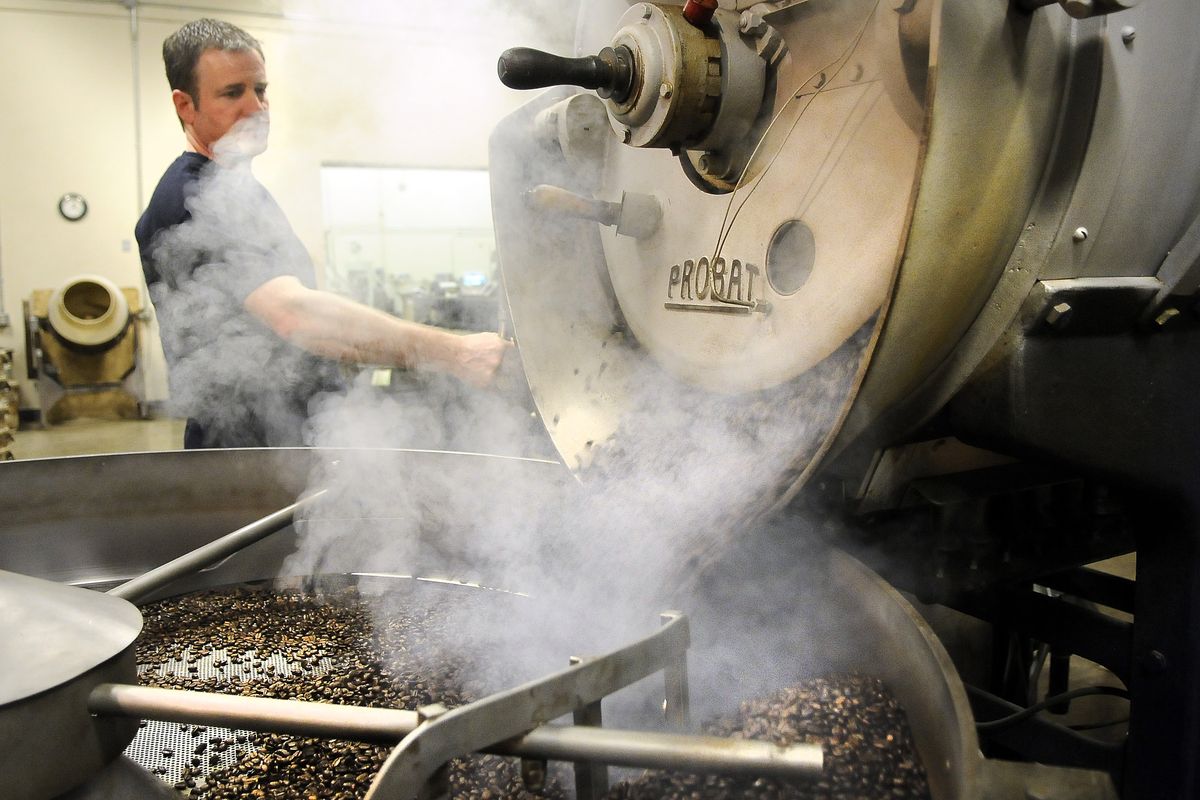Coffee roasters feeling the pinch
Area companies say they have absorbed most of cost increase

Spokane coffee roasters are losing sleep, and it’s not the caffeine.
Supplies of high-quality Arabica beans are tight. Prices have doubled in the last year.
Last week, Starbucks announced it would raise the price on its packaged coffees an average 12 percent, in line with increases by other major brands.
Simon Thompson, owner of Cravens Coffee Co., said he has raised prices twice in recent months, but the total seven percent boost amounts to less than $1 per pound.
His costs, and those of other roasters, are climbing at a much faster rate.
“We absolutely did not pass it all on,” said Thompson, who roasts about 500,000 pounds of coffee per year.
Although bad weather in critical coffee-growing areas such as Colombia has been blamed for the price squeeze, Thompson said increased speculation in commodity markets and a weak U.S. dollar are bigger factors.
Good beans are out there, he said, the issue is price.
Coffee has become so valuable gangs in South America are hijacking shipments, Thompson said. “A container is now worth tens of thousands of dollars.”
He said some suppliers are avoiding fulfillment of long-term contracts by closing up shop, then reopening under another name.
“They vaporize,” Thompson said.
He said importers are selling cheaper robusta beans to roasters willing to blend them into more expensive varieties in order to keep costs down.
“I’ve never seen that before,” said Thompson, who has been in the coffee business 20 years.
Thomas Hammer, owner of Thomas Hammer Coffee Roasters, said the company has purchased contracts for coffee into the first quarter of 2012.
Importers will not commit to deliveries past August, he said, and there may be nothing available then.
“We can’t roast hot air,” he said.
Prices for benchmark “C” market coffee, were $1.45 per pound a year ago, Hammer said. Those contracts closed Tuesday at $2.74 per pound. “Differentials” added for fair trade or organic beans add another $1 per pound, he said.
Hammer just raised its prices 35 cents per pound, the first increase in three years, Hammer said, even though his costs have jumped $1.20 per pound.
“We’re going to eat the other 75 cents,” he said. “I don’t think the consumer will bear it.”
With little expectation high prices will retreat for another two years, Hammer said he will have to find ways to economize.
“We’re looking to rebuild our whole business,” he said.
At Roast House, a tiny newcomer, Deb DiBernardo said she and co-owner Dave Rier are telling suppliers to just give them a firm price, and one their customers can swallow.
She said Roast House buys only organic coffee, much of it direct from growers.
“It’s quite a challenge for us to find product,” she said.
Rier said he buys lots as small as 50 bags from Batzchocola, a village in Guatemala. He has contracts for beans from Central America and Mexico out one year.
Sumatran and Ethiopian beans have not yet been harvested, he said, adding “I’m not too concerned for the next six months.”
Rier said Roast House has raised prices 10 percent.
Jeff Henry, warehouse manager at 4 Seasons Coffee Roasting Co. Inc., said he, too, does not foresee a turnaround in prices.
He said 4 Seasons pays $1.40 more for a pound of coffee than one year ago, but has raised its prices just 30 cents per pound.
Henry said he has roasted most of the beans purchased under long-term contracts. He’s buying more in the spot market, and paying the price.
Hammer said suppliers control the coffee market, and prices, after years when buyers had the upper hand.
“They hold the cards,” he said. “Why would you release coffee if it’s climbing through the roof?”